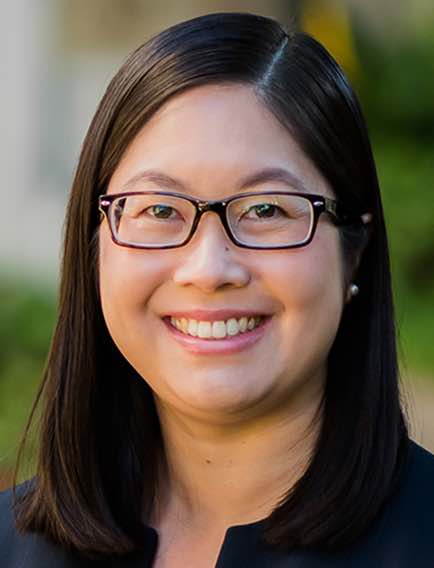E-Newsletter - October 2020
Spotlight on Alliance Trials
Alliance Trial Studies Side Effects of Pembrolizumab WITH, WITHOUT Chemotherapy in OLDER PATIENTS with Advanced Non-small Lung Cancer
Alliance A171901: Older non-small lung cancer patients (>/= 70 years of age) treated with first-line MK-3475 (pembrolizumab) +/- chemotherapy (oncologist's/patient's choice)
 Early investigator Melisa L. Wong, MD, MAS, of University of California San Francisco, together with Aminah Jatoi, MD, of Mayo Clinic, are leading Alliance A171901, a trial that studies the side effects of pembrolizumab in older patients with or without chemotherapy in treating patients with stage IV non-small cell lung cancer that has recurred and spread to other places in the body.
Early investigator Melisa L. Wong, MD, MAS, of University of California San Francisco, together with Aminah Jatoi, MD, of Mayo Clinic, are leading Alliance A171901, a trial that studies the side effects of pembrolizumab in older patients with or without chemotherapy in treating patients with stage IV non-small cell lung cancer that has recurred and spread to other places in the body.
Investigators confirm that there is currently limited data on the side effect profile of immunotherapy in large groups of patients 65 years or older. This is a result of poor enrollment of older patients to clinical trials, which can be due to a number of factors. Additionally, outcome data in this same population remains limited. Given the increasing number of cancer diagnoses in older adults, it is important to better understand both toxicity and efficacy of agents such as pembrolizumab.
This trial’s primary objective is to estimate the adverse event profile of pembrolizumab over the first six months of treatment, in patients with non-small cell lung cancer who are 70 years of age or older. Patients have the option of receiving pembrolizumab with or without chemotherapy in a first-line setting.
Patients will be assigned to one of two groups based on what the patient and oncologist decide is most appropriate. All treatments are given intravenously on the first day of each cycle. Each cycle can last 21 days, but the trial allows for patients to receive pembrolizumab on a 42-day cycle. Those in Group 1 will receive pembrolizumab (MK-3475) alone. Those in Group 2 will receive pembrolizumab (MK-3475) along with two chemotherapy drugs: pemetrexed and carboplatin on the first day of each cycle. Patients will continue receiving the treatment until their cancer progresses, the patient or oncologist decide to stop, or side effects preclude further therapy. Patients will also be asked to complete four questionnaires and a geriatric assessment.
For complete information on the trial design, treatment plan, and patient eligibility, refer to the study protocol, which can be found on the Alliance website or the CTSU website.
Study Chairs: Melisa L. Wong, MD, MAS, University of California San Francisco | E-mail: melisa.wong@ucsf.edu and Aminah Jatoi, MD, Mayo Clinic | E-mail: Jatoi.Aminah@mayo.edu
Activated: 10/01/2020 | Status: New recruiting patients
CT.gov Link: http:/bit.ly/Alliance-A171901
For other articles in this issue of Alliance E-News, see below.
-
Alliance Activates New Trials, Enrolls Participants in Midst of COVID-19 Pandemic (snapshots)
Alliance A171901 - Advanced non-small cell lung cancer
Alliance A091902 - Angiosarcoma
Alliance A021806 - Resectable pancreatic cancer
Alliance A081801 - Non-small cell lung cancer
Alliance A221805 - Peripheral neuropathy/colorectal cancer
Alliance A151804 - National biorepository for immune-related adverse events
Alliance A031803 - Invasive bladder cancer - Alliance - COVID-19 Updates and Resources (Alliance members)
- Who We Are - Defining, Understanding All Four Distinct Alliance Entities
- 2020 Alliance Fall Virtual Group Meeting Convenes Nov 4-7
-
Recent Alliance-related News & Publications
Alliance Appoints Electra D. Paskett PhD Cancer Control Program Director, PI of Alliance NCORP Research Base
ASCO Highlights Alliance Investigators
Recap :: 2020 Alliance/ASCO Abstracts
Alliance Researchers Identify Gene Variant Linked to Drug-Induced Hypertension from Bevacizumab
What Happened to the US Cancer Cooperative Groups? A Status Update Ten Years After the Institute of Medicine Report
The National Clinical Trials Network and the Cooperative Groups: The Road Not Taken


